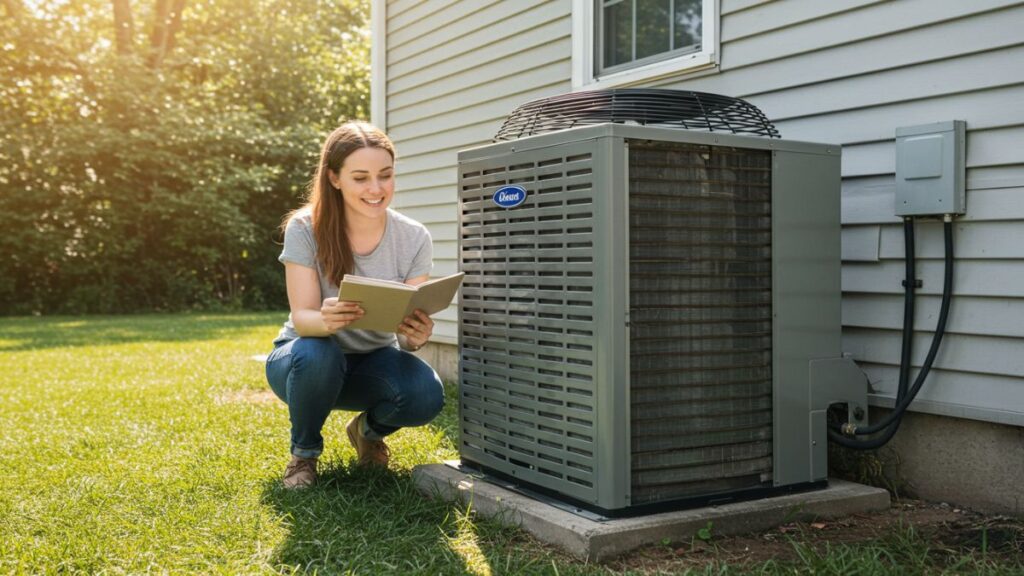Choosing between repairing an existing air conditioning system and installing a new one can be tough for many homeowners. As units age or falter, it’s natural to want to extend their life with a few repairs. However, that isn’t always the most logical or economical route. Energy efficiency, long-term costs, and comfort can all be affected by this decision. We will explore how to determine whether a repair will keep your home comfortable for the foreseeable future or whether it’s finally time to retire the old system and replace it with a new one.
Key Signs That Point Toward Replacement Over Repair
Your System Is Over 10-15 Years Old
Air conditioning systems aren’t designed to last forever. Most residential units operate effectively for 10 to 15 years with routine maintenance. Once your AC is past this age, it starts to lose efficiency and often requires frequent service. While repairs might restore function temporarily, they won’t bring back the original energy efficiency or performance levels. Older systems often rely on outdated technology and refrigerants that may now be phased out or more expensive to replace.
In many cases, the money spent on maintaining a system at the end of its lifecycle can be better invested in a new unit that offers improved energy ratings and reliability. Furthermore, new installations—such as those available through Commerce City air conditioning installation services—often come with warranty coverage and advanced features that your aging system lacks. Rather than constantly dealing with reduced comfort and increasing utility bills, replacing your unit could bring peace of mind and long-term savings.
Repairs Are Becoming More Frequent or Costly
Every air conditioner needs occasional maintenance or a small repair, but if your technician’s number is on speed dial, it may be time to reevaluate. When you face several repairs within a short period—especially if each one costs more than a few hundred dollars—the cumulative expense can rival the price of a new system. Additionally, frequent breakdowns indicate that multiple components are deteriorating, even if they haven’t failed. You might replace a fan motor this month only to face a compressor failure next season.
Instead of pouring money into a machine with one foot in the grave, replacing it provides a more stable and predictable outcome. A one-time investment in a new unit eliminates the uncertainty of ongoing repairs and improves your home’s reliability and comfort. If the total cost of repairs is approaching 50% of what a new unit would cost, that’s usually a strong signal to consider replacement instead.
Energy Bills Keep Climbing Despite Regular Maintenance
Increasing your energy bill without a change in usage is another red flag. Over time, air conditioners become less efficient, especially if key components like coils, motors, or compressors are no longer performing at full capacity. Even with regular filter changes and seasonal tune-ups, older systems can struggle to keep up with demand, consuming more energy to produce the same results.
Newer air conditioning units are built to higher efficiency standards and are often compatible with smart thermostats and variable-speed compressors, which optimize performance and reduce waste. If your older system lacks these features, you could miss significant savings. Rather than overpaying for electricity each month, investing in a modern, energy-efficient system can pay for itself over time through lower bills. If energy costs are climbing faster than inflation or utility rates, and you’ve already optimized your usage, your AC might be the culprit.
Inconsistent Cooling and Increasing Discomfort Indoors
Have you noticed that some rooms are colder than others, while others stay warm no matter how long the system runs? This uneven distribution of cool air could point to issues within the system beyond what basic repairs can fix. Problems like duct leaks, outdated blower motors, or systems that are simply too small or too large for your space often surface over time. While some of these issues might be resolved with ductwork adjustments or system recalibration, older units often lack the flexibility and technology to manage indoor comfort efficiently.
If your home never seems quite cool enough—even when the system runs constantly—replacement might be the solution that truly addresses the problem. A newer installation can be properly sized for your space and feature zoning capabilities or humidity control that weren’t standard in older models. This translates to a more comfortable home with less energy wasted and fewer complaints from household members.
Knowing whether to repair or replace your air conditioning system depends on many factors, including age, performance, repair costs, energy efficiency, and the type of refrigerant it uses. A new installation may feel like a large upfront investment, but often leads to greater comfort, lower energy bills, and fewer service calls. If you’re dealing with any of the warning signs above, evaluating your long-term costs and comfort could help you make a clearer decision.







